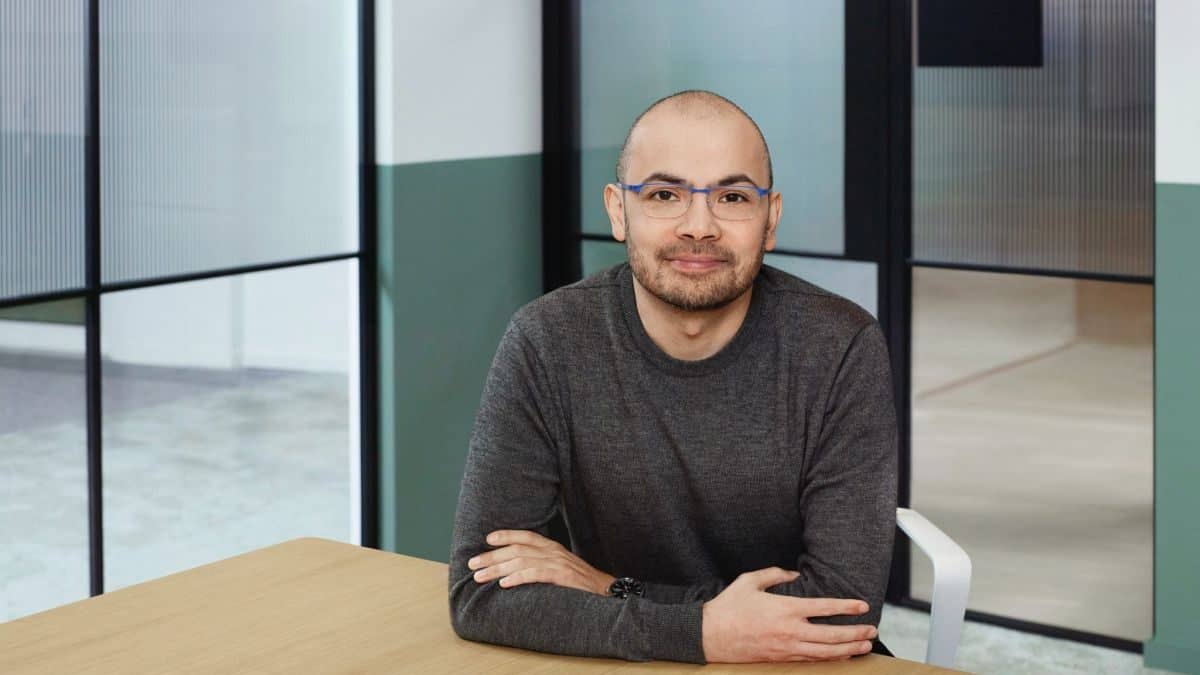DeepMind’s CEO Demis Hassabis Sets Sights on Achieving AGI Within 10 Years


In Brief
The merger of Google Brain and DeepMind signals the transition of AI from a confined lab environment to widespread application.
Hassabis emphasized the potential of non-generative AI products and suggested that the focus may shift towards these products in the coming years.
DeepMind shares a vision with Microsoft for AI chatbots to evolve into universal AI assistants.
In a recent interview with The Verge, Demis Hassabis, the CEO of Google DeepMind, shared key insights into the future of AI and the progress made by DeepMind. The interview shed light on the merger of Google Brain and DeepMind, the success of ChatGPT, the potential of non-generative AI, the future of AI chatbots, and the path towards AGI.

The merger of Google Brain and DeepMind, according to Hassabis, is a step towards integrating AI into everyday products. It signals the transition of AI from a confined lab environment to widespread application. The release of ChatGPT and the subsequent popularity of chatbots demonstrated the AI in performing tasks that were previously considered exclusive to human capabilities, such as writing letters, creating plans, and coding.
Hassabis emphasized that there are numerous non-generative AI products that deserve recognition. He suggested that the focus may shift towards these products in the coming years, highlighting the breadth of possibilities beyond generative AI.
Regarding AI chatbots, DeepMind shares a similar vision with Microsoft. Both companies see chatbots evolving into universal AI assistants that can assist individuals in their daily activities. However, current chatbots still lack the ability to plan and remember information, highlighting areas for further development.
Hassabis highlighted the next stage in AI’s evolution, which involves the interaction of multiple models. This approach would involve a language and learning model (LLM) responsible for communication and understanding, while another specialized model performs specific tasks. This collaborative interaction between models can drive advancements towards AGI, which refers to highly autonomous systems that outperform humans in most economically valuable work.
When discussing the timeline for AGI, Hassabis provided a cautious forecast, stating that AGI might be achievable within the next 10 years, but uncertainties remain. The development of AGI requires significant progress in various AI domains and poses complex challenges that necessitate careful exploration.
I had a fascinating conversation with @ezraklein about how AI can help solve global challenges. I also shared some book recommendations that I hope can inspire some interesting thinking about the future. https://t.co/dy8tz3d9ir
— Demis Hassabis (@demishassabis) July 13, 2023
Demis Hassabis: The Chess Prodigy Turned AI Pioneer
London-born Demis Hassabis, renowned for his academic prowess and remarkable talent in chess, has emerged as a prominent figure in the field of AI. From his early achievements as a chess master to co-founding DeepMind Technologies and eventually joining Google, Hassabis has played a significant role in advancing AI research and development.

At the young age of 13, Hassabis attained the rank of chess master, securing the second-highest rating in the world among players under 14. This early success foreshadowed his future accomplishments in the world of technology. Starting his career at Bullfrog Productions, he played a key role in the design and programming of the popular game Theme Park. Afterward, he pursued higher education in Computer Science Tripos at Cambridge University, where he graduated with first-class honors in 1997.
Following his tenure at Bullfrog, Hassabis founded Elixir Studios, a venture that thrived with over 60 employees and secured partnerships with major publishers such as Vivendi Universal and Microsoft. His passion for gaming and technology drove his ambitions further.
Hassabis’s journey took a turn when he transitioned to cognitive neuroscience, focusing on the intricate workings of memory and amnesia. He completed his PhD in cognitive neuroscience at University College London in 2009, conducting influential research in the field. His expertise extended to the Gatsby Computational Neuroscience Unit at UCL, where he explored the intersection of neuroscience and AI.
In 2011, Hassabis co-founded DeepMind Technologies, an AI startup based in London, alongside Shane Legg and Mustafa Suleyman. Their work caught the attention of Google, leading to the acquisition of DeepMind for £400 million in 2014. This acquisition bolstered Google’s AI capabilities, integrating cutting-edge technology and talent into their search-focused business.
DeepMind’s focus on developing AI systems capable of spontaneous and independent thinking, akin to human cognition, aligns with Hassabis’s vision for the future. His leadership skills, competitive spirit, and ability to inspire teams have contributed to his success in driving AI innovation forward.
Hassabis and his team have maintained a level of secrecy around their projects, refraining from public comments and interviews. The enigmatic nature surrounding DeepMind has only added to its allure.
Read more about AI:
Disclaimer
In line with the Trust Project guidelines, please note that the information provided on this page is not intended to be and should not be interpreted as legal, tax, investment, financial, or any other form of advice. It is important to only invest what you can afford to lose and to seek independent financial advice if you have any doubts. For further information, we suggest referring to the terms and conditions as well as the help and support pages provided by the issuer or advertiser. MetaversePost is committed to accurate, unbiased reporting, but market conditions are subject to change without notice.
About The Author
Damir is the team leader, product manager, and editor at Metaverse Post, covering topics such as AI/ML, AGI, LLMs, Metaverse, and Web3-related fields. His articles attract a massive audience of over a million users every month. He appears to be an expert with 10 years of experience in SEO and digital marketing. Damir has been mentioned in Mashable, Wired, Cointelegraph, The New Yorker, Inside.com, Entrepreneur, BeInCrypto, and other publications. He travels between the UAE, Turkey, Russia, and the CIS as a digital nomad. Damir earned a bachelor's degree in physics, which he believes has given him the critical thinking skills needed to be successful in the ever-changing landscape of the internet.
More articles

Damir is the team leader, product manager, and editor at Metaverse Post, covering topics such as AI/ML, AGI, LLMs, Metaverse, and Web3-related fields. His articles attract a massive audience of over a million users every month. He appears to be an expert with 10 years of experience in SEO and digital marketing. Damir has been mentioned in Mashable, Wired, Cointelegraph, The New Yorker, Inside.com, Entrepreneur, BeInCrypto, and other publications. He travels between the UAE, Turkey, Russia, and the CIS as a digital nomad. Damir earned a bachelor's degree in physics, which he believes has given him the critical thinking skills needed to be successful in the ever-changing landscape of the internet.


















































